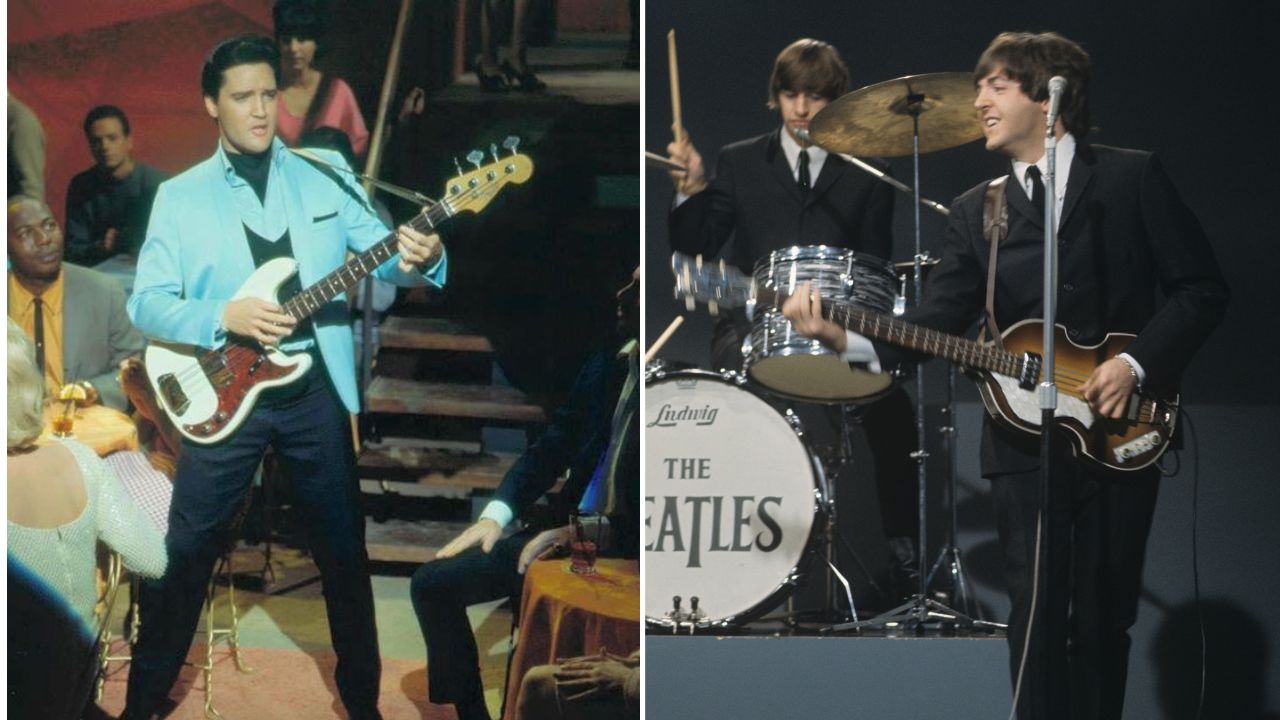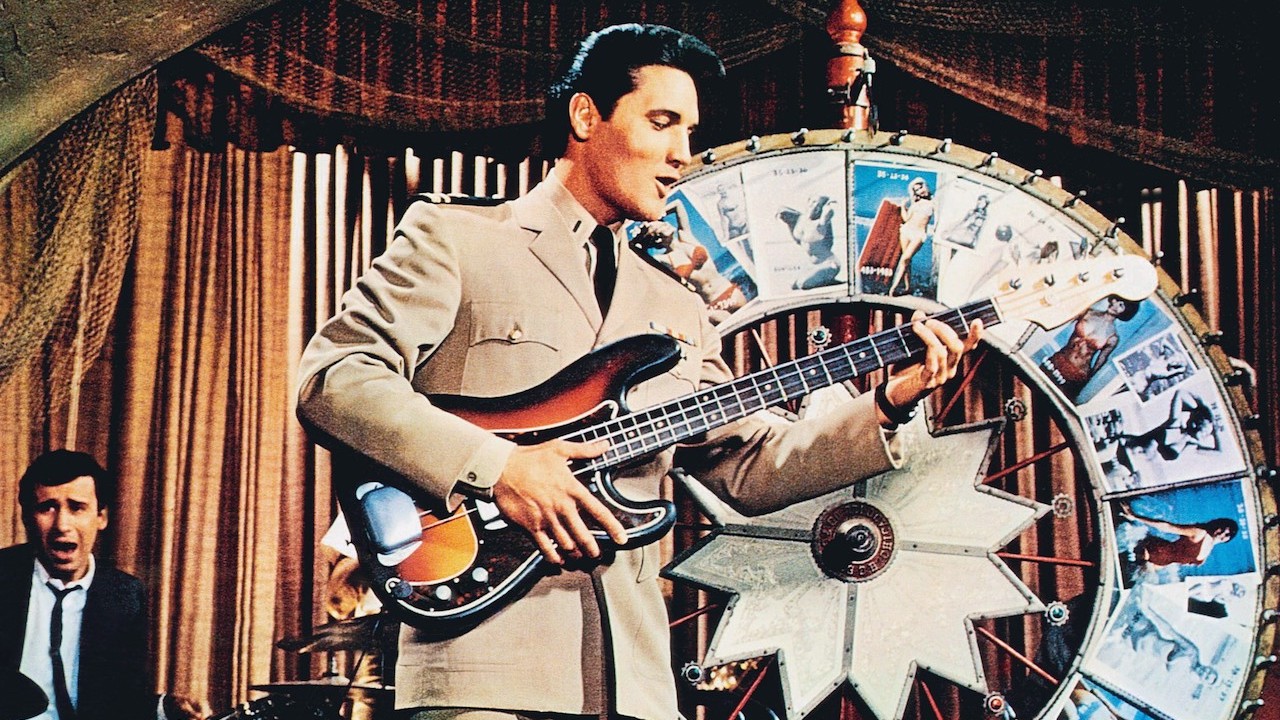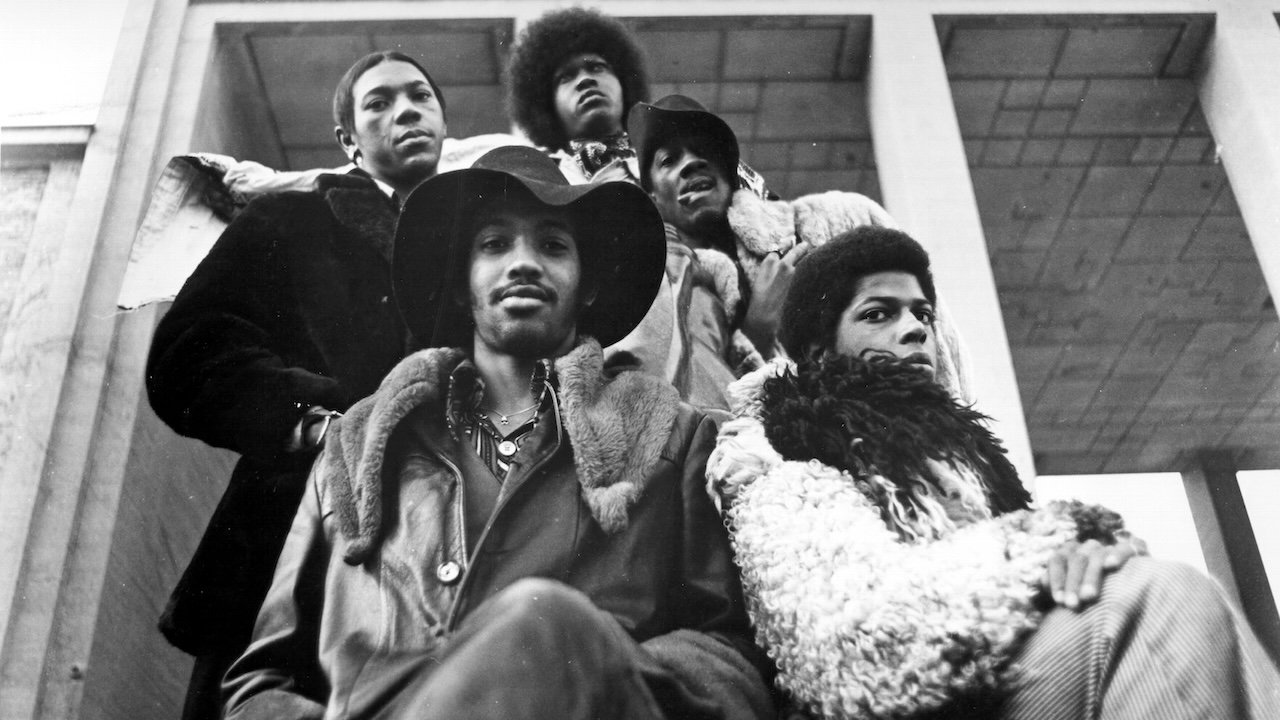In 1965 Elvis Presley was playing bass guitar, with a little help from Paul McCartney
Paul McCartney: “He was trying to learn bass, so I was like, ‘sit down, let me show you a few things’”

All the latest guitar news, interviews, lessons, reviews, deals and more, direct to your inbox!
You are now subscribed
Your newsletter sign-up was successful
For all the praise that Paul McCartney’s earned as a songwriter it’s quite possible that he doesn’t get enough credit for his bass guitar playing. “You just think of him as Beatle Paul,” said producer Rick Rubin. “But in my opinion he is the best of all bass players, he’s number one.”
McCartney’s melodic style owed much to Motown’s James Jamerson, whom he’s often credited as his biggest influence. From there, he became interested in seeking out other bass players, including one of the most famous singers of all time, Elvis Presley, as he told Music Radar. “When we met Elvis, he was trying to learn bass, so I was like, ‘You’re trying to learn bass, are you … son? Sit down, let me show you a few things.’ So I was very proud of being the bass player.”

The Fab Four paid a visit to Presley’s Beverly Hills mansion during their US tour in 1965. "The party really had been a bit lifeless and unexciting,” remembered Tony Barrow, who was The Beatles' press officer at the time. "But as soon as Presley and The Beatles began to play together, the atmosphere livened up. Elvis strummed a few bass guitar chords for Paul and said: 'See, I'm practising.' And Paul came back with some quip about: 'Don't worry, between us, me and Brian Epstein will make a star of you soon.’"
So why did Elvis initially greet The Beatles with such studied casualness? "He was simply affirming his role," said Priscilla Presley of her former husband. “But I heard later that Paul had told Jerry Scheff that once Elvis picked up that bass guitar he knew he was in.”
The Beatles were all heavily influenced by Presley’s 1956 hit, Heartbreak Hotel, which they would perform live in the early 60s. “Elvis is a truly great vocalist, and you can hear why on Heartbreak Hotel,” said McCartney. “It’s a perfect example of a singer being in command of the song. Musically it’s perfect, too. The double bass and the walk-in piano create this incredibly haunting atmosphere. It’s so full of mystery, and it’s never lost that for me. The echo is just stunning. When The Beatles were recording, we’d often ask George Martin for ‘the Elvis echo.’ I think we got it down perfectly on A Day in the Life.”
Taken from Chaos And Creation at Abbey Road, McCartney's own rendition of Heartbreak Hotel sees him unveil the double bass that was used on the original track. “I’m gonna have great pleasure in revealing this,” he says. “This is the bass. Those Elvis fans among you will notice this white trim that was on all the early album covers. It was played by Bill Black, Elvis Presley’s bass player.” As you would expect, McCartney’s cover is as stripped back as you can get.
“One of the stories I heard about this bass was that in the early days Elvis, Scotty Moore, his guitar player, and Bill Black used to work as a trio, and they would be working locally in Tennessee – places like that. So, you have to imagine, it’s a beautiful starry night driving along the interstate: Elvis driving, Scotty Moore and Bill Black, and this little baby strapped to the roof rack.”
For more Beatles news visit thebeatles.com.
All the latest guitar news, interviews, lessons, reviews, deals and more, direct to your inbox!

Nick Wells was the Editor of Bass Guitar magazine from 2009 to 2011, before making strides into the world of Artist Relations with Sheldon Dingwall and Dingwall Guitars. He's also the producer of bass-centric documentaries, Walking the Changes and Beneath the Bassline, as well as Production Manager and Artist Liaison for ScottsBassLessons. In his free time, you'll find him jumping around his bedroom to Kool & The Gang while hammering the life out of his P-Bass.

